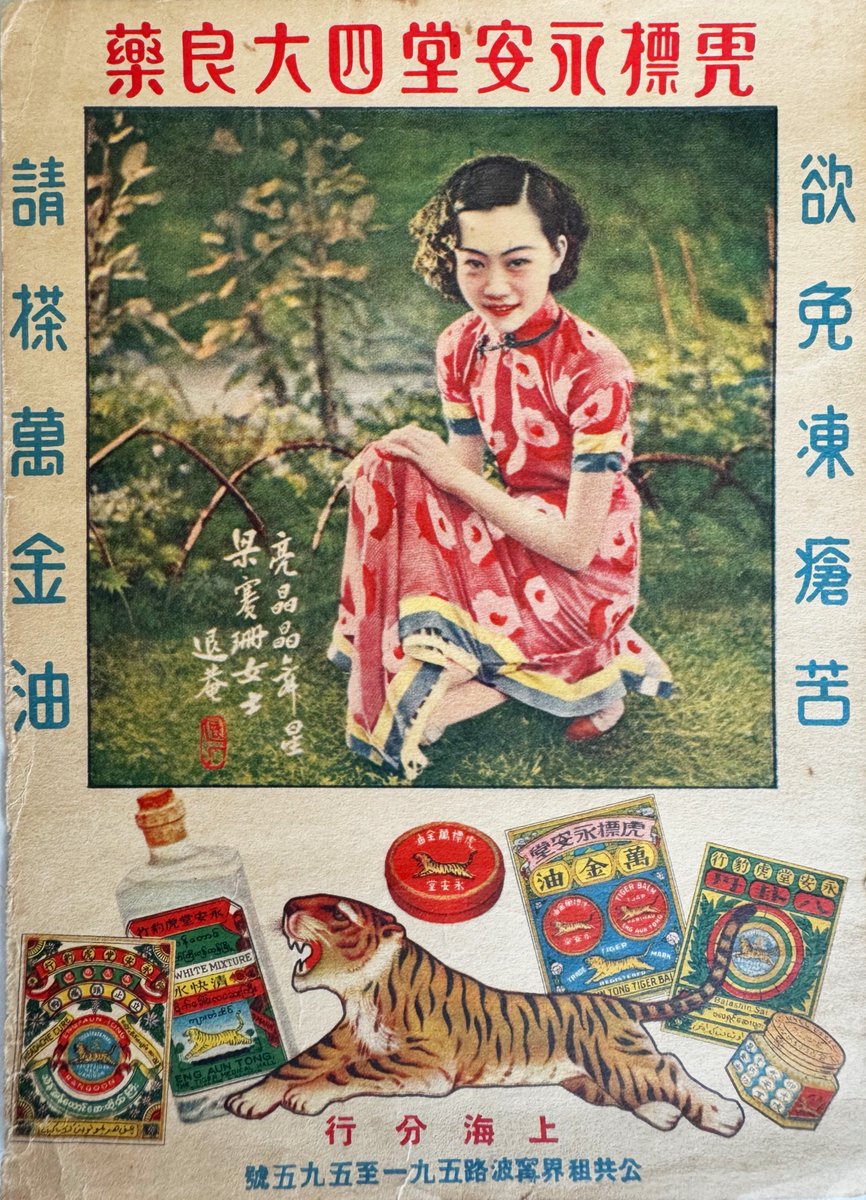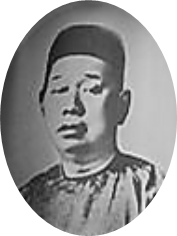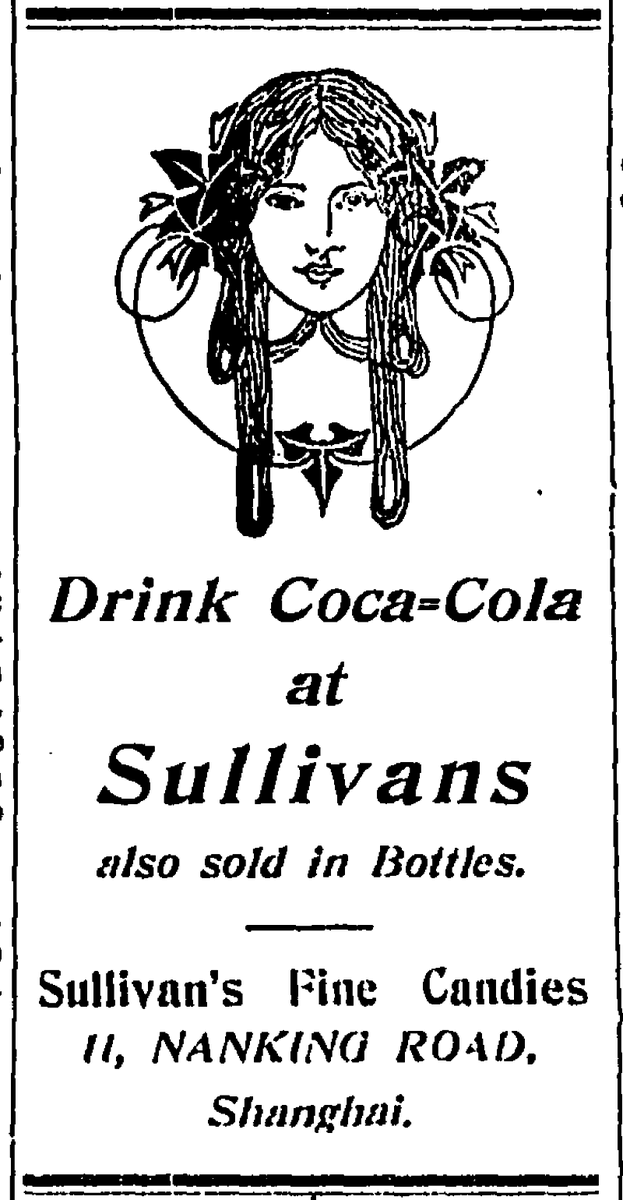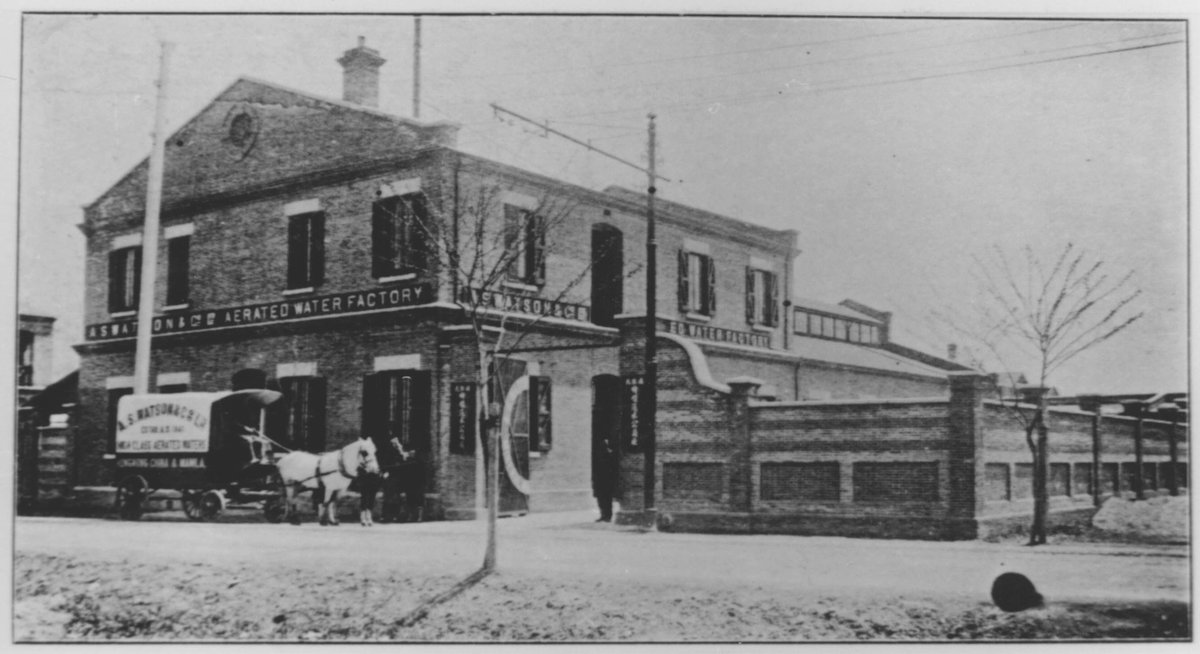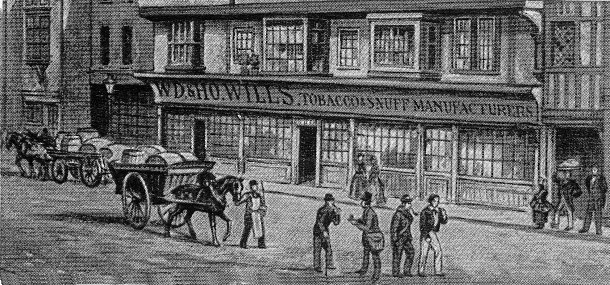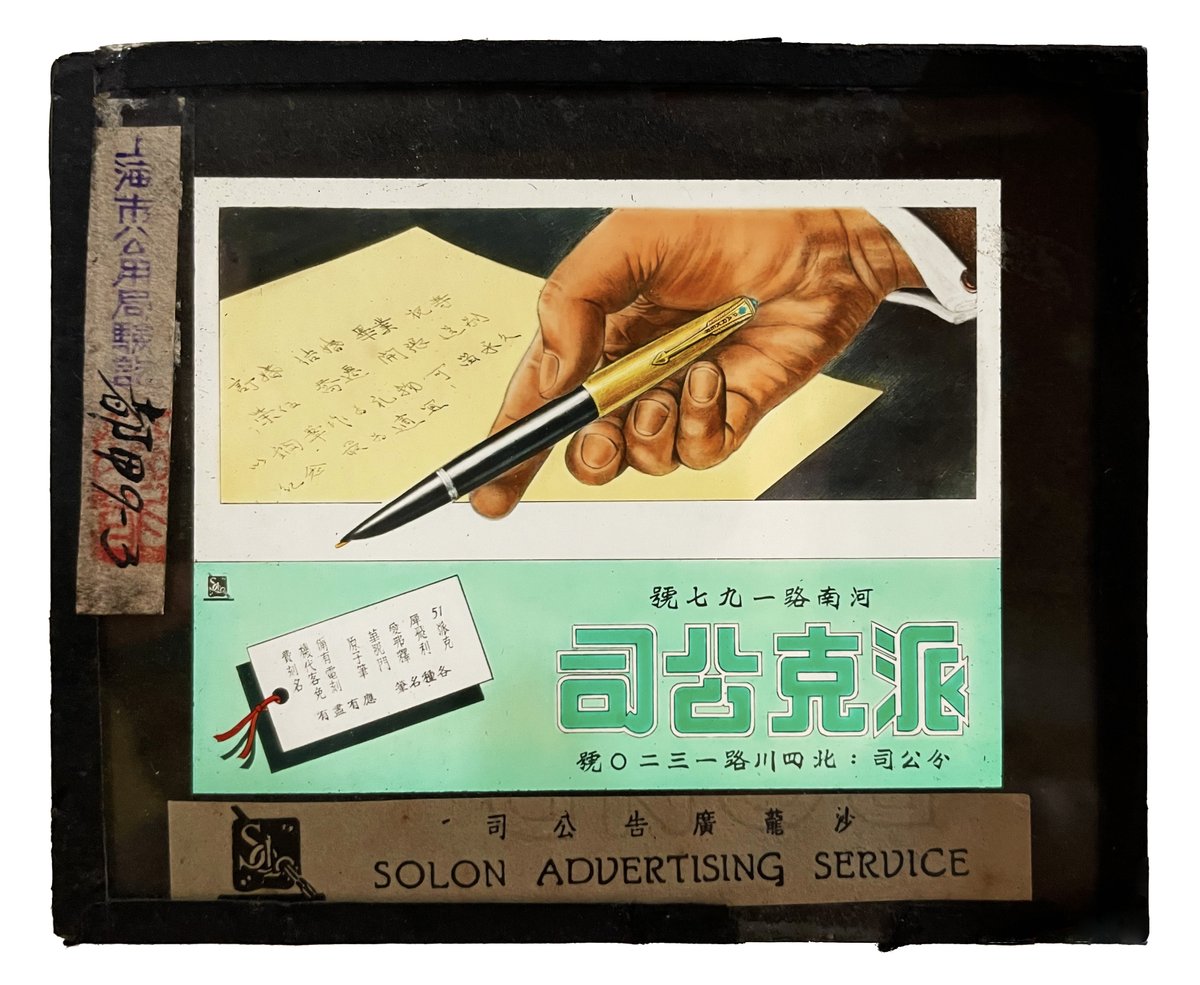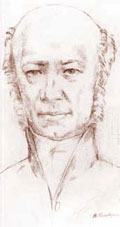A shocking Suicide & Run-Away Stars: Aspirins headaches with influencer marketing in 1930s China. This advertising poster from our collection tells of an incredible streak of bad luck for the German pharma giant Bayer during a both glamourous & troublesome period of history: 1/n 
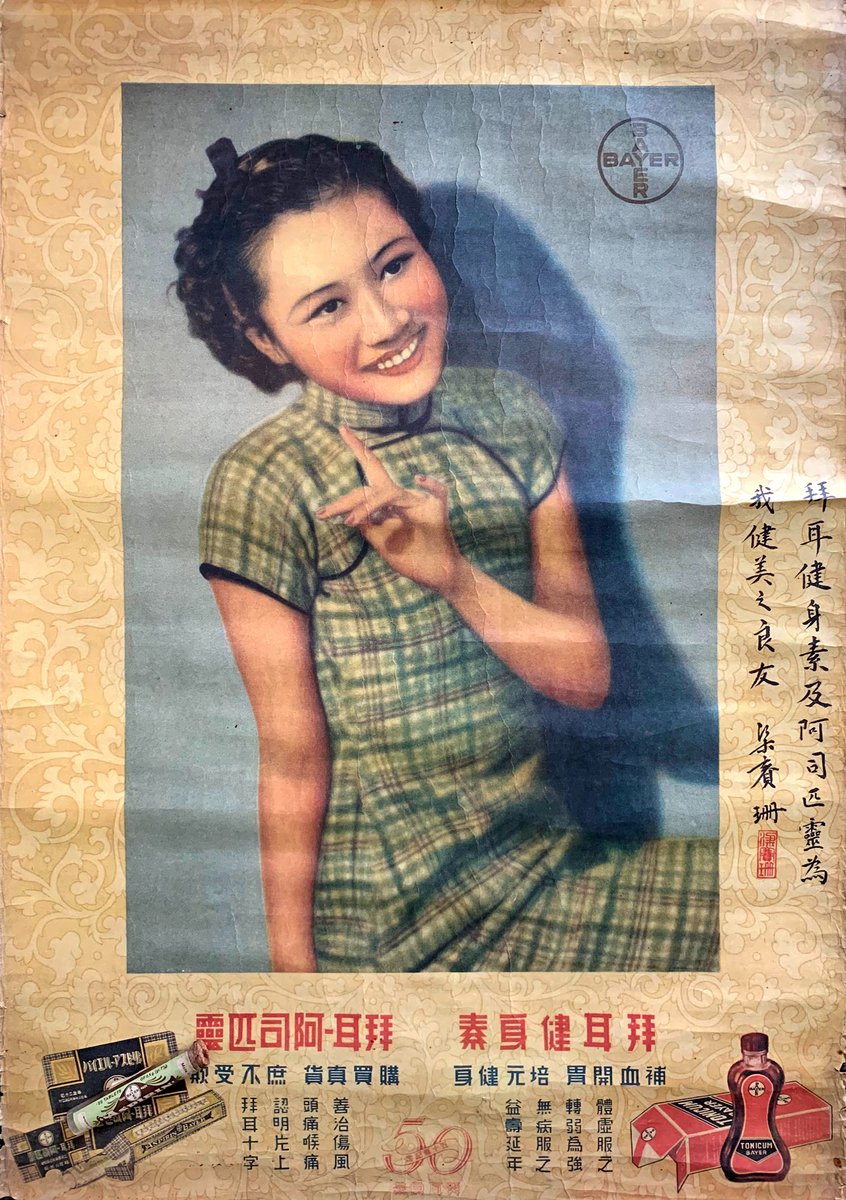
Bayer was founded 1863 as „Friedr. Bayer et comp.“ in Barmen, Germany as a dyestuffs producer by Friedrich Bayer and Friedrich Weskott. The company’s links with Greater China date back to 1882, when it first began marketing its colorants there. In the early years,... 2/n 
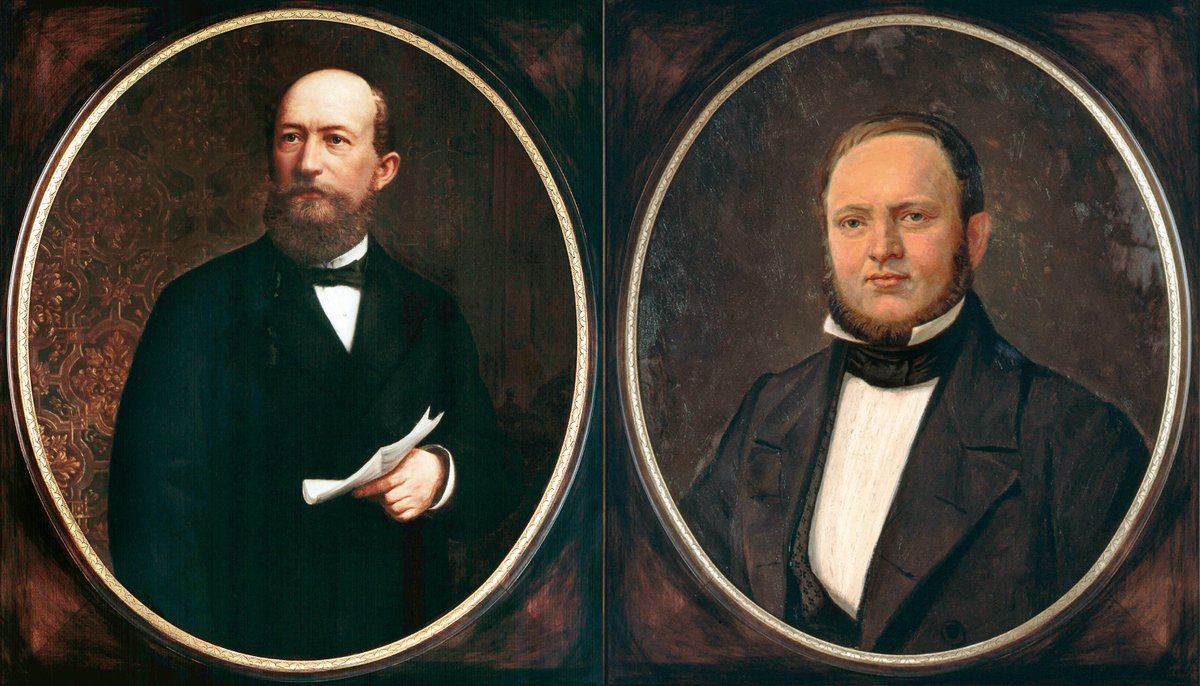
..Bayer relied on German trading houses and local distributors in the treaty ports, who channeled Bayer products into China's remote provinces. In 1888 Bayer expanded from dyes to also producing pharmaceutical products. Ten years later, in 1897, scientists at Bayer began... 3/n 

..studying acetylsalicylic acid as pain relief and anti-inflammatory drug and by 1899, had named it "Aspirin”. It soon became the hero products of the company and was sold around the world including to China. Due to the increasing demand and enormous potential of the... 4/n 

..Chinese market already at that time, Bayer incorporated its own subsidiary called "Firma Friedrich Bayer & Co." in Shanghai in 1913 and started to directly engage in distribution. From 1915 until almost the end of WWI, Bayer invested heavily in advertising such as print... 5/n




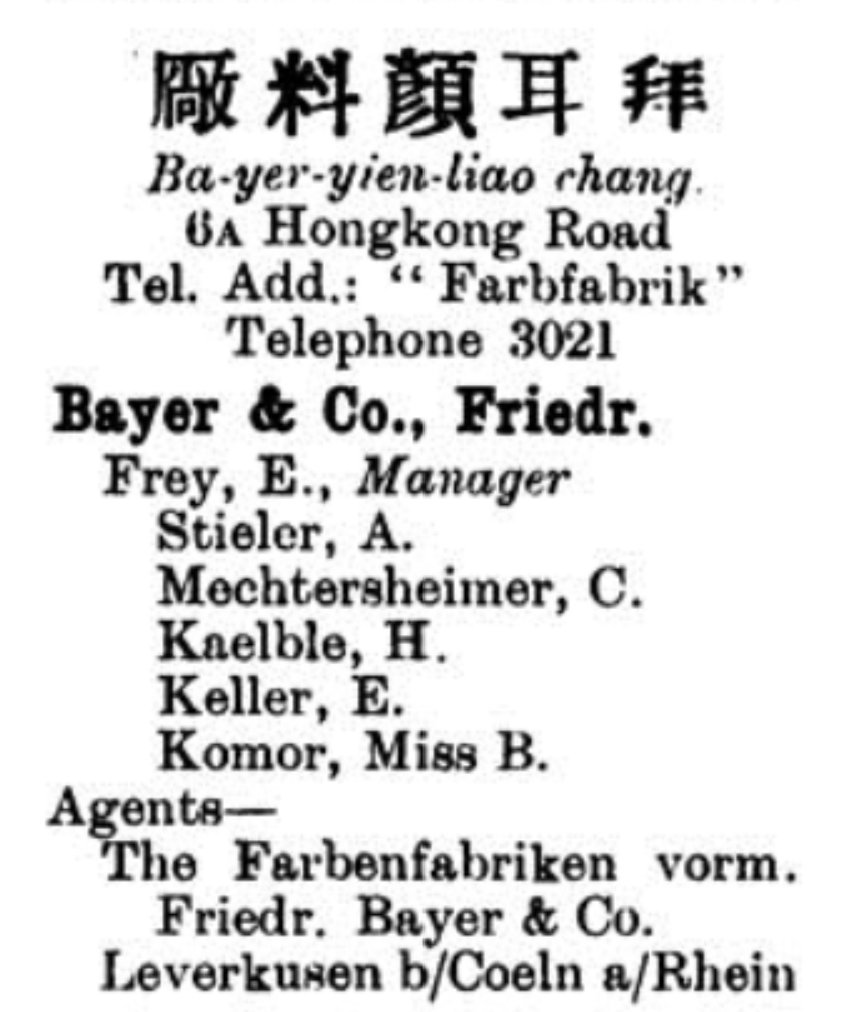



..ads and outdoor billboards, primarily for the Aspirin pain killer brand which was initially translated as Āsīpǐlíng (阿司匹灵). After the defeat of Germany in the First World War, Aspirin became a victim of its own popularity, when under the 1919 Treaty of Versailles... 6/n








..it was forced to give up its trademark in the territories of the Entente, which also influenced the trademark status in China. All the more Bayer now had to invest in advertising urging consumers to “take only Aspirin-tablets in original packings." 7/n




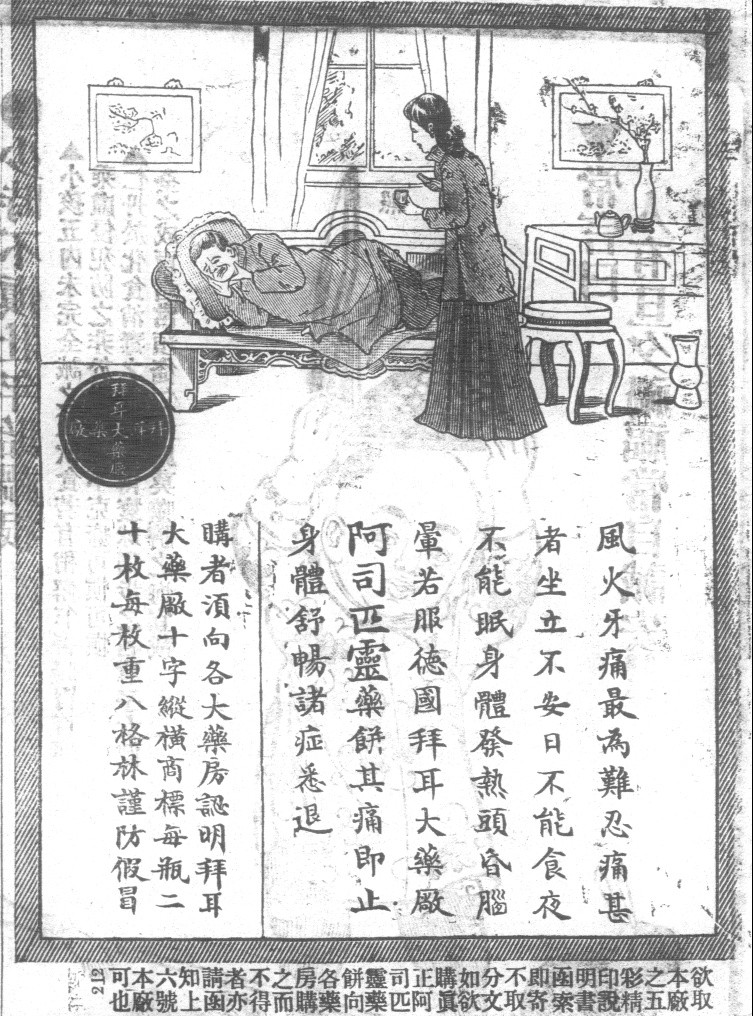

In 1925 Bayer and 5 other German companies formed the conglomerate I.G. Farbenindustrie AG, which became the largest company in Europe and the largest chemical and pharmaceutical company in the world. In the same year, Bayer and other I.G. Farben members such as BASF and... 8/n 

..Agfa resumed their marketing and sales efforts in China as evident by the resumption of significant marketing efforts. Bayer’s business in China flourished over the next decade and the company increasingly engaged in modern marketing methods to advertise itself and its... 9/n







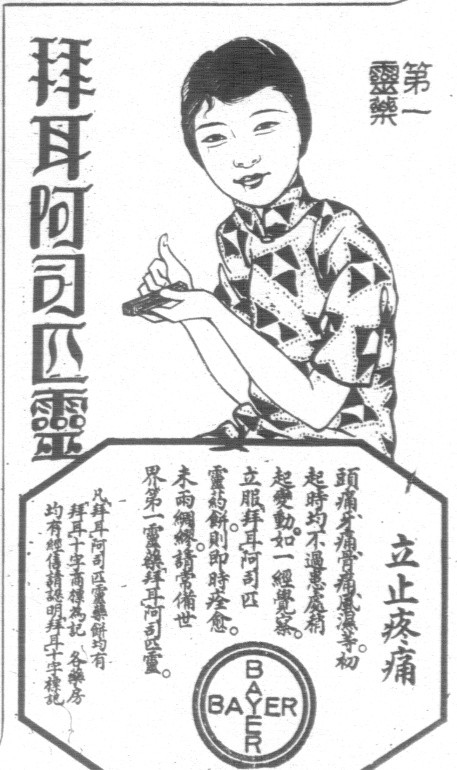
..numerous pharma brands. Our collection includes many such examples of Bayer’s creative advertising materials and giveaways such as newspaper and magazine advertisements,... 10/n
https://twitter.com/MOFBACN/status/1472801768950149121
..posters,... 11/n
https://twitter.com/MOFBACN/status/1373828782369304577
..calendars, branded thermometers,... 12/n
https://twitter.com/MOFBACN/status/1518414165060120576
..paper weights (which were praised by the local news press!),... 13/n

https://twitter.com/MOFBACN/status/1181224272783708162

..branded Chinese chess boards and... 14/n
https://twitter.com/MOFBACN/status/1181224272783708162
..notebooks. Most famously the company hired the up & coming actress Ruan Lingyu as celebrity endorser in 1934. An advertising poster of her promoting Aspirin was featured in her final movie “New Woman” which was released in early 1935. Tragically,.. 15/n
https://twitter.com/MOFBACN/status/1325608569769660418
..soon after the release of the film the celebrated star committed suicide by overdosing on sleeping pills in March 1935. You can imagine the horror of the Bayer executives, when learning of the heartbreaking ending of their superstar influencer... 16/n
https://twitter.com/MOFBACN/status/1501119885295816705
Surprisingly, Bayer’s image and sales were not harmed by the shocking incident. Quite the opposite was the case, because with Ruan Lingyu’s now legendary status the company was able to continue to utilize her poster in advertisements well into the... 17/n
https://twitter.com/MOFBACN/status/1307858433484361728
..1940s. Business in fact was so good, that the pharma giant established its first Chinese factory called Bayer Pharma Co. in Shanghai in 1936 to produce Aspirin and several of its other medicine brands locally. In 1938 Bayer celebrated the 50-year anniversary of its... 18/n 

..pharma business & published a book titled “Fifty years of Bayer remedies, 1888-1938”, which was also shared with the newspapers in China as news reports of the time show. At the same time, and despite its previous misadventure with Ruan Lingyu, Bayer launched a new... 19/n 
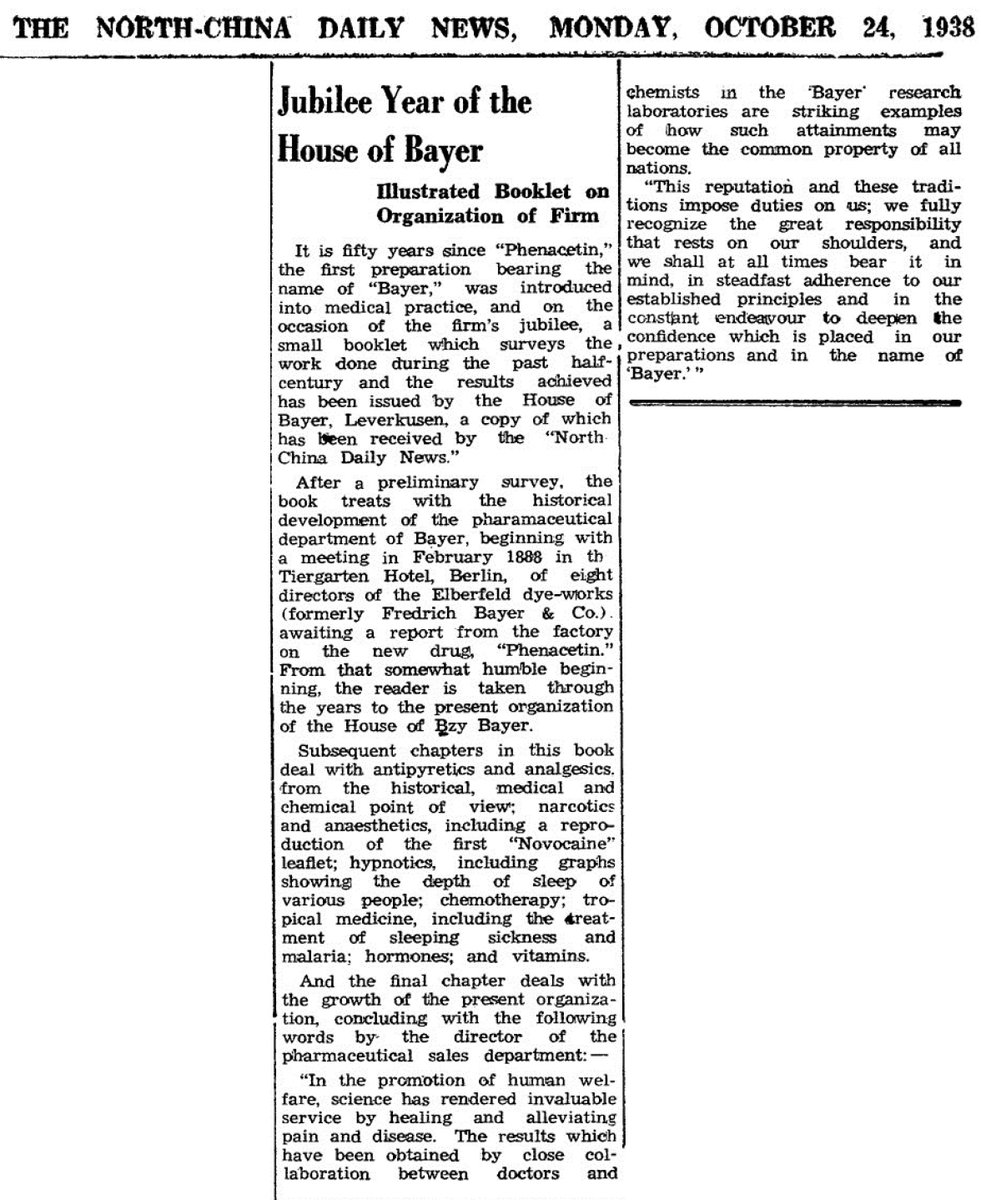
..key influencer campaign, once again betting on celebrities from the movie and entertainment world. The choice fell on the Liang sisters, who before the start of the Sino-Japanese War in 1937, had reached peak celebrity status in China. The eldest sister, Liang Saizhen... 20/n






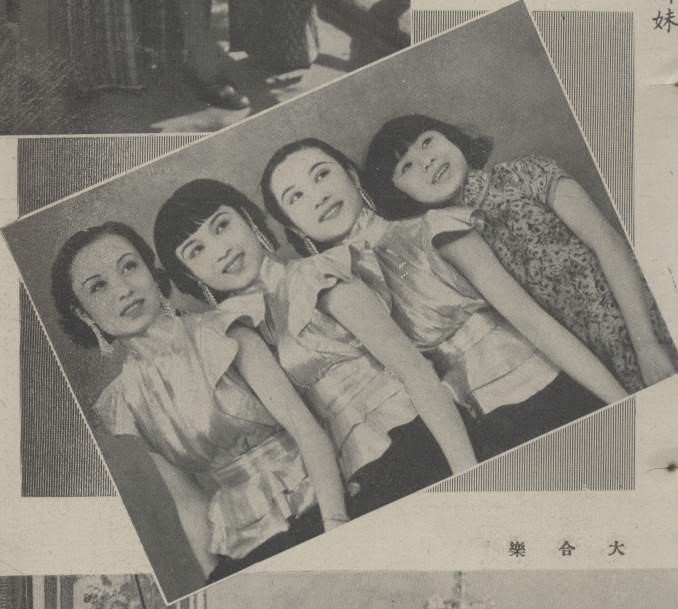

..(梁賽珍), became a popular actress in Shanghai during the same time as Ruan Lingyu. She appeared in over 20 films in Shanghai & eventually Hong Kong and Singapore. Her younger sisters Liang Saizhu (梁賽珠), Liang Saishan (梁賽珊), and Liang Saihu (梁賽瑚) also acted in... 21/n






..several films. “Four Sisters”, produced by the influential Lianhua Co film studio starred all four of them together. During the 1930s dance hostesses operating at cabarets could earn salaries far higher than most other female professions including film actresses, and... 22/n 
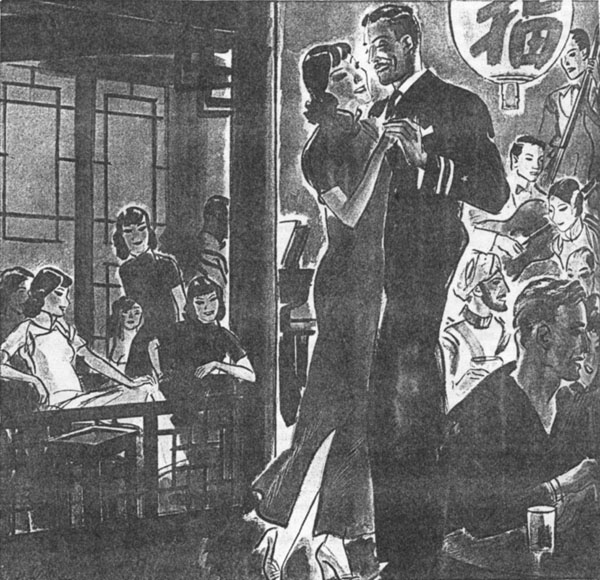
..many film stars chose to become such taxi dancers instead of or in addition to their acting careers. Just like the 3 eldest Liang sisters who worked in the Majestic Café & danced themselves up to the most popular dance hostesses of Shanghai at the time. In conjunction... 23/n








..with their movie careers, it catapulted them to super stardom, being frequently featured in the tabloid press on the covers of Shanghai’s hottest entertainment and fashion magazines. In September 1934, the Lianhua film company gave Liang Saizhen a supporting role in its... 24/n








..movie “Whirlpool”, and the Liang sisters signed a deal with a company to sell a line of swim suits after the movie was finished as reported by Andrew Field in his seminal book “Shanghai’s Dancing World”. Other lucrative endorsement deals soon followed for the sisters... 25/n






Here's the right link to the paperweight...
https://twitter.com/MOFBACN/status/1482980553955676164
..such as with the Sweetie bubble gum brand,... 26/n
https://twitter.com/MOFBACN/status/1644243678742085633
..Omega watches,... 27/n
https://twitter.com/MOFBACN/status/1655034368816209920
..the Green Spot soft drink. In 1937 the I.G. Farben conglomerate approached the Liang sisters for what appears to have been a massive package deal across several of their brands. 29/n
https://twitter.com/MOFBACN/status/1691999799908913156
The particular poster from our collection for Bayer Aspirin & Tonicum features Liang Saishan together with a personal note, her signature and seal and a reference to the upcoming 50-year anniversary in 1938. Our collection also entails an original packaging of Aspirin... 30/n




..tables for the Chinese market. We also found a second Bayer poster starring Liang Saizhu, which was even reprinted and praised by the Chinese press. But not only that, it turns out that the same design template with the Liang sisters was also used for a parallel... 31/n




..campaign with Bayer’s I.G. Farben sister company BASF for their highly popular Idanthrene textile colors as surviving posters featuring Liang Saizhu show. But once again Bayer’s influencer plans in China were abruptly crossed, when the Second Sino-Japanese War broke out... 32/n 

..in 1937 & Germany soon switched sides to align itself with Japan. The Liang sisters fled to Hong Kong, abandoning their endorsement deals in China over night. The three eldest were subsequently hired as dance hostesses at the New World Cabaret... 33/n
https://twitter.com/MOFBACN/status/1658695891715497991
..in Singapore. They worked with the chairperson of the Singapore Cabaret Girls' Association to raise funds for the anti-Japanese cause, incl. the auction of dance tickets & jewelry, and charity performances of Cantonese & Peking opera in Singapore, Penang and Kuala Lumpur. 34/n 

After the fall of Singapore, key members of the Relief Committee were targeted for prosecution. Failing to board the last ship to Australia, the Liang sisters reportedly went into hiding in order to save their own lives. After the war Liang Sai Zhu was once again involved... 35/n 

..with charity work at the Xing Hua Orphanage and Liang Sai Zhen became the manager of the Dragon and Phoenix Dance Palace in the Great Southern Hotel. There are contradicting reports on the fate of the other two sisters which we could not verify but they all appear to... 36/n 

..have survived the war in South-East Asia. Back in China, the Nationalist government eventually seized all German-owned assets and liquidated them after the country was once again defeated in 1945. In November 1947 Bayer Pharmaceutical’s Shanghai laboratory and factory... 37/n 
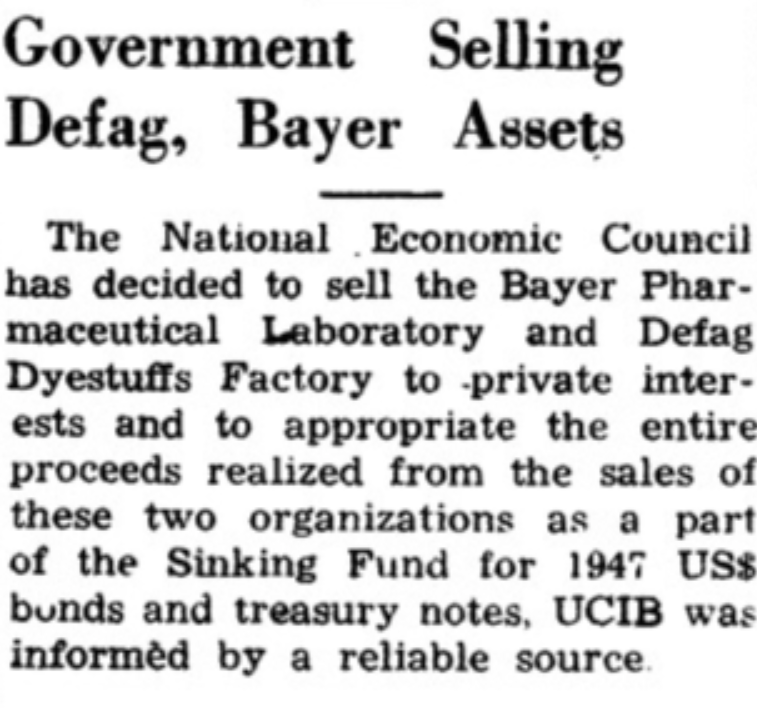
..were sold by the National Economic Council to private interests. After 65 years in China, the company with all its brands retreated from the market and did not return until 1986 when a representative office in Beijing and a liaison office in Shanghai were opened Since... 38/n 

..then, @Bayer & its famous Aspirin brand seem to be doing well again, employing over 9,000 staff in Greater China & reaching sales of 3.7bil EUR annually. Most importantly Bayer has not suffered any further endorsement scandals in China since their misfortunes in the 1930s. 39/n 
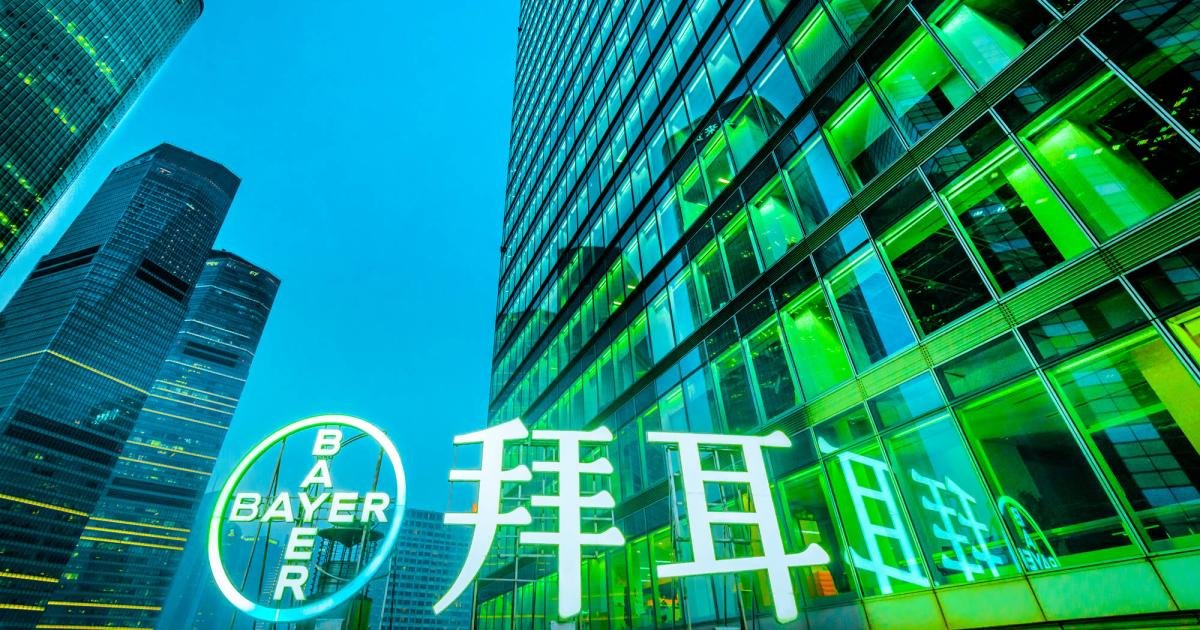
Bitter Pills to Swallow: The Haunting Bayer Aspirin Influencer Saga in 1930s China /End mofba.org/2023/12/01/bit…
• • •
Missing some Tweet in this thread? You can try to
force a refresh



